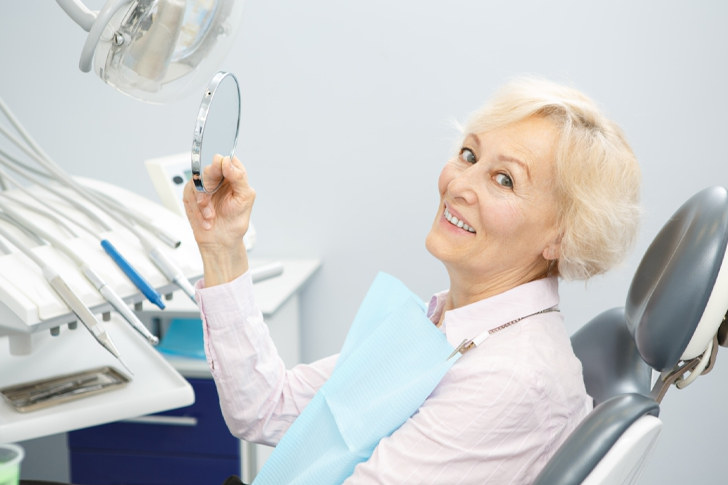Dental Care Options for Individuals Over 55: Overview of Services
Aging brings with it numerous considerations concerning health, one of which is dental care. As individuals age past 55, their dental needs become more specific and sometimes more urgent due to the natural aging process, previous dental history, and existing health conditions. Understanding the various options available for dental care is essential for maintaining not only oral health but also overall well-being. This article aims to provide a comprehensive look at the dental services tailored to meet the needs of those over 55, ensuring that our elderly population receives the best care possible.

Dental Challenges Faced by Individuals Over 55
As one ages, the mouth undergoes various changes. Teeth wear down and gums may recede, potentially leading to sensitivity, cavities, and gum disease. Older adults are also at a higher risk for oral cancer. According to the American Cancer Society, the average age of most people diagnosed with these cancers is 62. Furthermore, existing chronic diseases such as diabetes, heart disease, and osteoporosis can directly impact oral health, necessitating more specialized dental care.
Regular Dental Exams and Cleanings
Regular dental exams and cleanings are crucial for maintaining oral health at any age but are particularly significant for those over 55. These visits allow dentists to monitor changes in oral health, identify issues before they become severe, and remove plaque and tartar that can lead to gum disease. The Centers for Disease Control and Prevention (CDC) recommends that older adults continue to visit their dentist regularly, despite the common misconception that dental health becomes less important with age.
Specialized Dental Procedures for Seniors
Depending on the individual’s oral health status, different procedures may be recommended. For example, dental fillings, crowns, or bridges might be necessary to restore the functionality of damaged teeth. In cases where tooth loss is a reality—a common issue as the National Institute of Dental and Craniofacial Research reports that seniors over 65 have an average of 18.90 remaining teeth—options such as dentures or dental implants play a crucial role. Dental implants, for instance, provide a more permanent solution and can improve the quality of life significantly by improving eating and speech, which affects nutritional intake and social interaction.
Periodontal Care
Gum disease is a significant concern for older adults, with the CDC noting that over 70% of Americans aged 65 and older have periodontitis. As this can lead to pain, infection, and tooth loss, managing gum health is a priority. Treatments for gum disease vary from deep cleaning, known as scaling and root planing, to surgery in severe cases. Maintenance, after initial treatment, often includes more frequent cleanings and possibly medication to manage infection.
Options for Financing Dental Care
One of the significant barriers to obtaining proper dental care for seniors is cost. Medicare, the primary health insurance for Americans 65 and older, does not cover most dental care services, such as cleanings, fillings, tooth extractions, or dentures. However, many supplemental dental insurance plans specifically designed for seniors are available. These plans often focus on the most likely needed services, potentially lowering out-of-pocket costs. Additionally, some non-profit organizations offer financial assistance or reduced-cost services for older adults. It’s also worth looking at local dental schools where services can be provided at a lower rate by supervised students.
Oral Health and Overall Wellness
The link between oral health and general health becomes increasingly pertinent as we age. Poor oral health has been linked to various diseases, including heart disease, stroke, and diabetes. Therefore, maintaining optimal oral hygiene not only contributes to a healthy mouth but also supports overall health and can help manage chronic diseases more effectively.
Adapting Home Care Routines
As individuals age, they may face new challenges in maintaining their dental hygiene due to physical limitations such as arthritis. Tools like electric toothbrushes and water flossers can make dental care easier and more effective. Education on proper brushing and flossing techniques continues to be important, regardless of age, to prevent dental issues. Tailoring home care to include antibacterial mouth rinses or more frequent brushing can be advised depending on individual needs assessed by a dental professional.
The Importance of Dietary Choices
Diet also plays a critical role in dental health. Foods high in sugar and acids can contribute to tooth decay and gum disease. Seniors should focus on a balanced diet rich in fruits, vegetables, lean proteins, and dairy products to encourage strong teeth and gums. Hydration is equally important; a dry mouth can increase the risk of dental decay and gum disease, so ample fluid intake is crucial.
Dental care for individuals over 55 is about addressing specific needs to uphold quality of life and general health. Regular dental visits, specialized treatments, funding options, and home care adaptations are all part of managing aging and sustaining both dental and overall health. By understanding and accessing the appropriate services, seniors can enjoy a healthier, more comfortable lifestyle.







Recent Comments